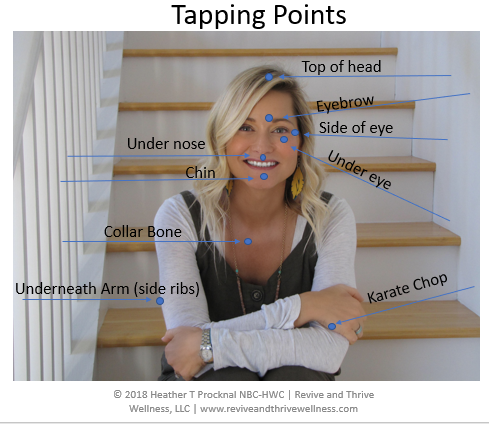Expert Advice

Acella Pharmaceuticals is partnering with Heather Procknal, NBC-HWC-CHC, to bring greater awareness to the importance of thyroid care and education. This post was sponsored by Acella Pharmaceuticals.
Disclaimer: The information provided is for educational purposes only and does not substitute professional medical advice. Consult a medical professional or healthcare provider before beginning any exercise, fitness, diet, or nutrition routine. Acella Pharmaceuticals, LLC does not endorse, promote or sponsor any products or brands mentioned in this article. The views expressed here are those of the author.
Oftentimes, the path to improving your health and wellness is a winding road. When dealing with the negative side effects of thyroid dysfunction, the most obvious paths may be taking prescription medication, modifying your diet and getting more exercise. But there is a big piece of the puzzle, that when missing or ignored, may make your best efforts feel futile.
This important piece is the powerful mind-body connection.
Fortunately, mindfulness practices such as meditation, journaling, yoga and breath-work are becoming more mainstream and more accepted in the medical community. Yet, there is another lesser known modality that may help you “tap into” your feelings and take you one step closer to positive thyroid symptom management.
Emotional Freedom Techniques
The term Emotional Freedom Techniques is an energetic healing practice that also goes by other names:
• EFT • Tapping • Emotional Acupressure
Created in 1995 by Gary Craig, a Stanford-trained engineer, these techniques are a combination of cognitive behavioral therapy (CBT) and ancient Chinese medicine (acupressure at specific meridian points). Various integrative health and wellness practitioners use EFT with their patients for stress, anxiety, physical pain and illness.
EFT is based on Craig’s theory that all illness has an emotional component and that our emotions are “energy in motion.” He reports that when energy gets stuck or stagnates within the body, emotional and physical symptoms appear. By moving this energy through the body’s meridian system, symptoms can diminish or may even disappear.
“The cause of all negative emotions is a disruption in the body’s energy system.”
– Gary Craig

“Tapping” is done by using your fingertips to tap on specific meridian points on the body while simultaneously tuning into and bringing awareness to the source of the blockage that is manifesting as emotional or physical symptoms.
These symptoms can show up emotionally and physically as:
• Self-defeating thoughts • Anxiety • Brain fog • Frustration • Restlessness • Depression • Poor sleep • Weight gain • Brittle nails • Thinning hair and many more
If you have a sluggish thyroid, these symptoms may sound all too familiar.
The EFT tapping process helps soothe the fight-or-flight response that is triggered by negative emotions or physical ailments while engaging your body’s parasympathetic relaxation response.
Feeling stressed or worried activates the amygdala, which is a small almond-shaped structure located deep within the temporal lobes of the brain. The amygdala is involved in processing many of our emotions, particularly those relating to our survival, such as fear and anger. It is also what triggers the fight-or-flight response I mentioned earlier.
EFT assists in unlocking your body’s natural ability to heal and neutralize physical and emotional pain, mental blocks or limiting beliefs. It has been so effective in treating Post-Traumatic Stress Disorder (PTSD) that it is now a covered health benefit for many military veterans through Veteran Affairs programs across the country. A meta-analysis of EFT for anxiety, depression and PTSD indicate treatment effects that exceed those of both psychopharmacology and conventional psychotherapy. 1
EFT has been validated in more than 100 clinical trials that involved participants including war veterans, victims of sexual violence, motor accident survivors, prisoners, hospital patients, adolescents and survivors of natural and human-caused disasters.
Once these tapping techniques are taught to their patients, many health care providers recommend using it as a “first line intervention.” This cost-effective and often self-guided modality may become a useful tool to add to your tool kit for managing your thyroid symptoms and applying a mind-body approach. As always, please remember to give yourself grace and kindness as you navigate your own path to your optimal health and wellness.
REFERENCES: 1. Dawson Church, Peta Stapleton, Phil Mollon, David Feinstein, Elizabeth Boath, David Mackay, and Rebecca Sims. (Dec 12 2018). Guidelines for the Treatment of PTSD Using Clinical EFT (Emotional Freedom Techniques). Retrieved on January 2, 2020 from https://www.ncbi.nlm.nih.gov/pmc/articles/PMC6316206/#B42-healthcare-06-00146/.
Note that DTE products, including NP Thyroid®, have not been reviewed by the FDA for safety or efficacy.
IMPORTANT RISK INFORMATION, INCLUDING BOXED WARNING & INDICATIONS
Important Risk Information
Drugs with thyroid hormone activity, alone or together with other therapeutic agents, have been used for the treatment of obesity. In euthyroid patients, doses within the range of daily hormonal requirements are ineffective for weight reduction. Larger doses may produce serious or even life-threatening manifestations of toxicity, particularly when given in association with sympathomimetic amines such as those used for their anorectic effects.
- NP Thyroid® is contraindicated in patients with uncorrected adrenal insufficiency, untreated thyrotoxicosis, and hypersensitivity to any component of the product.
- In the elderly and in patients with cardiovascular disease, NP Thyroid® should be used with greater caution than younger patients or those without cardiovascular disease.
- Use of NP Thyroid® in patients with diabetes mellitus or adrenal cortical insufficiency may worsen the intensity of their symptoms.
- The therapy of myxedema coma requires simultaneous administration of glucocorticoids.
- Concomitant use of NP Thyroid® with oral anticoagulants alters the sensitivity of oral anticoagulants. Prothrombin time should be closely monitored in thyroid-treated patients on oral anticoagulants.
- In infants, excessive doses of NP Thyroid® may produce craniosynostosis.
- Partial loss of hair may be experienced by children in the first few months of therapy but is usually transient.
- Adverse reactions associated with NP Thyroid® therapy are primarily those of hyperthyroidism due to therapeutic overdosage.
- Many drugs and some laboratory tests may alter the therapeutic response to NP Thyroid ®. In addition, thyroid hormones and thyroid status have varied effects on the pharmacokinetics and actions of other drugs. Administer at least 4 hours before or after drugs that are known to interfere with absorption. Evaluate the need for dose adjustments when regularly administering within one hour of certain foods that may affect absorption.
- NP Thyroid® should not be discontinued during pregnancy, and hypothyroidism diagnosed during pregnancy should be promptly treated.
Indications
NP Thyroid® (thyroid tablets, USP) is a prescription medicine that is used to treat a condition called hypothyroidism from any cause, except for cases of temporary hypothyroidism, which is usually associated with an inflammation of the thyroid (thyroiditis). It is meant to replace or supplement a hormone that is usually made by your thyroid gland.
NP Thyroid® is also used in the treatment and prevention of normal functioning thyroid goiters, such as thyroid nodules, Hashimoto’s thyroiditis, multinodular goiter, and in the management of thyroid cancer.
Revised
10/2023
You Are About To Leave This Website
By clicking continue, this link will take you to a website to which Alora Pharmaceuticals’ Policies & Terms of Use do not apply.
^Based on prescriptions filled, NP Thyroid® is the #1 Prescribed DTE in the United States. Source: IQVIA National Prescription Audit (NPA) data on file. Acella Pharmaceuticals, LLC.
